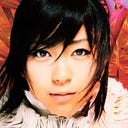Never had an Olympic event touched my admiration for the arts and culture of the host country quite like Paris 2024 did for France. Watching the Opening Ceremony brought a rush of emotions, reminding me just how much I’ve always held French culture in high esteem.
For me, French isn’t just a language; it’s a beautifully expressive and vivid experience. I remember, many years ago in Ottawa, when I had the chance to take a six-month French class, all thanks to my company. It was more of a self-improvement thing, like “French as Your Third Language.” I went into it with excitement, thinking it would be a breeze. But as it turned out, I’m not really the linguistic type. I ended up shifting my focus back to improving my English. Even so, the sound of French has always stayed with me, like music to my ears.
I still smile when I think about that weekend trip to Montreal during a business visit from the Bay Area to Toronto. I was so captivated by the conversations around me that I secretly recorded them in a lively restaurant where I had breakfast. Later, as I strolled through Mont-Royal Park, the voices of the Quebecois locals added a certain magic to the moment. It was like capturing a slice of life that I could replay whenever I missed that French vibe.
Over the years, my connection to French has mainly been through music. I’ve listened to thousands of French songs, and even though Google’s translations aren’t always spot-on, the essence of the lyrics still comes through. There’s something about the way French expresses fleeting, fragmented thoughts — abstract, vague, and yet so deeply meaningful — that resonates with me. English translations just can’t seem to do them justice.
The French music, especially the pop genre, is also quite distinctive like their language. Theirs are always having much more subtle layers and small neat flairs in their instruments arrangements, compared to their English or Nordic cousins’ pop music.
One of my earliest and most vivid memories of Canadian Francophones is their incredible sense of color. Back in the day, each of us had these enormous HP X-terminals linked to our workstations. I could always tell who the Francophones were just by looking at their screens. They’d customize their color themes into something beautiful, turning their terminals into little works of art. It wasn’t easy to do, but they did it with such flair. I tried, but I could never quite reach their level. Eventually, I gave up and stuck with the default green text on a dark background, just to blend in with my English-speaking colleagues.
So, when those three colored clouds of smoke exploded during the Paris 2024 Opening Ceremony, the shades of color hit me hard. They were so distinctly French — slightly offbeat yet perfectly harmonious. It brought me right back to those early days in Ottawa, where I first encountered the Quebecois’ eye for beauty, even in something as simple as a terminal screen.
My Francophone coworkers were just as unique in personality as they were in their love for color. They’d chat loudly in French, even if I was the only non-French speaker in the room. At first, it felt a bit awkward, but I quickly learned not to take it personally. It was just a cultural thing, and honestly, I enjoyed listening to them, even with their thick Quebecois accents (which I say with all affection, in a pre-PC way).
Pride ran deep in them, too. I remember this brilliant, sharp-tongued young man in our group who was gunning for a management position. His ambition was almost palpable, even to someone as clueless as I was at the time. But when our outgoing manager announced that his successor would be an English-speaking colleague instead of him, it crushed him. He resigned on the spot and headed back to Montreal to pursue a master’s in Electrical Engineering. I always thought that if it had been an English-speaking guy in his shoes, he might’ve opted for an MBA instead, just to bounce back from the disappointment.
The Quebec referendum for independence was another eye-opener. It was all about protecting French culture, and the Quebecois seemed to see themselves as even more French than the French in France. It was a losing battle, but they fought it with such determination. Back then, I didn’t fully understand their grudge against anything English. My limited English skills kept me from having those deep conversations with my Francophone coworkers, but I could sense the tension. Still, they were warm people once you got to know them, even if they seemed a bit cold or indifferent to strangers.
Paris 2024 brought all these memories flooding back, reminding me of just how distinct and unique French culture really is. Looking back over the past few centuries, I can’t help but wonder — what went wrong for France to lose its global dominance to England? When did English become the world’s dominant language?
History is often shaped by seemingly insignificant events that alter the course of humanity. Was it the French Revolution that sent France down the wrong path? Or was English simply more accessible, a language for the common people? I can’t help but imagine an alternate universe where French, not English, became the universal language. In such a world, Yseult might have had to choose a different song instead of adapting the English lyrics of “Comme d’habitude.” But then again, Paris 2024 wouldn’t need to explain to the world why it did things its own way.

My drawing via INS AI.
